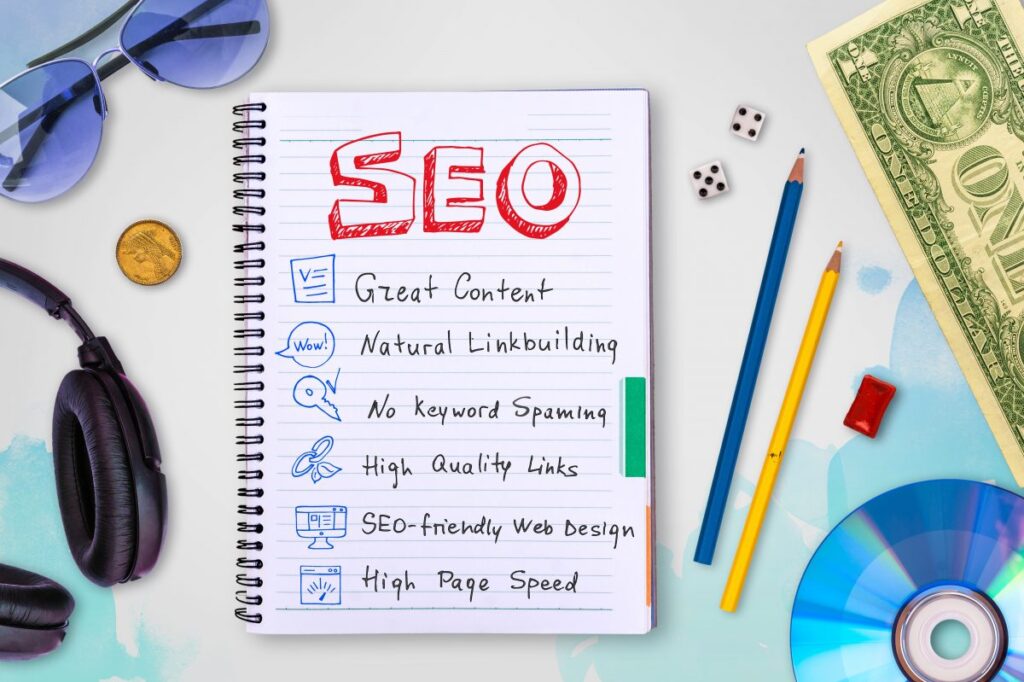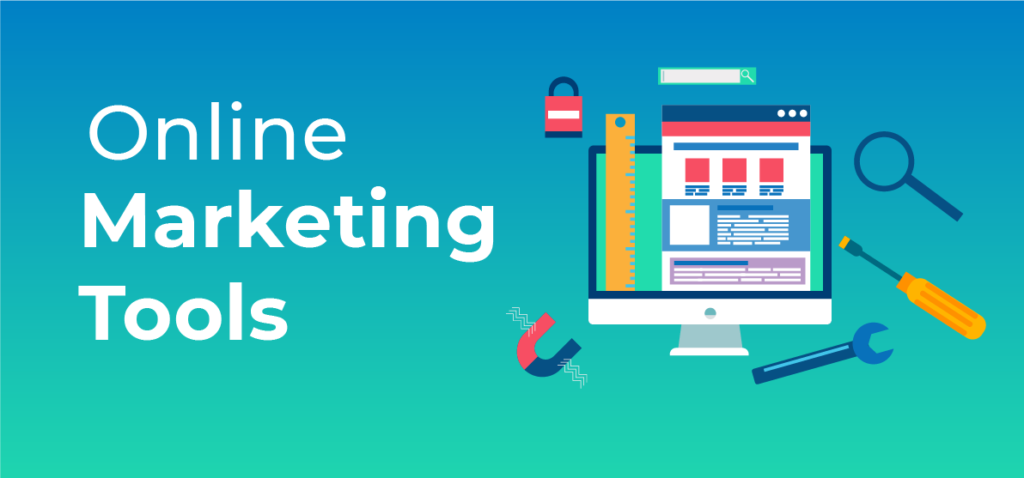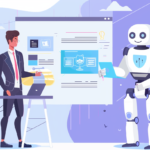Are you a human?
What exactly makes you human?
How do other humans know you are a human and not a bot?
There used to be a simple answer to these questions, but with the advent of large language model-based chatbots and the proliferation of Artificial Intelligence apps, the answer has become not so obvious, and increasingly more nuanced than it ever was.
Human “intelligence”, as we know it, is being challenged, replicated, and even surpassed in many domains we used to reign supreme.
So, if “intelligence” is not our defining characteristic, then what is it?
It turns out that it is a different type of “intelligence”– The type that bots have the hardest time emulating, and what may be the last human stronghold to be disrupted by machines and advanced algorithms: Intuition and Empathy. Who knew?
A fascinating academic article titled “Artificial Intelligence in Service” by Huang and Rust provides useful insights. The authors explain how AI tends to develop analytical abilities first, while human advantages remain in more intuitive, empathetic areas.
This means the humans who will continue to thrive are those who can upgrade their creative, social, and emotional skillsets.
While some rightfully fear this will displace human jobs, the study explains the key is for people to complement emerging technologies by focusing on uniquely human skills that machines cannot easily replicate.
The future belongs to well-rounded professionals who lead with creativity, intuition, empathy, and vision.
As an expert in digital marketing, I often think about how to develop the human advantage in an increasingly AI-driven world–– while fully leveraging the latest technologies.
So in this article, with the help of Claude 2, we’ll explore that idea and provide practical suggestions for how marketers and entrepreneurs can improve our “softer” skills to remain complementary to AI.
This article provides practical suggestions for how marketers and entrepreneurs can improve our “softer” skills to remain complementary to AI.
With some targeted training and practice, we can become more creative, emotionally intelligent, and masterful at connecting with people. By developing these deeply human capabilities, we can continue driving business success in an age of intelligent machines.
Quick Read: The 7 Best AI Landing Page Builders In 2024!
Key Skills for Humans in an AI World
The article analyzes four types of intelligence required for service tasks:
- Mechanical,
- Analytical,
- Intuitive
- Empathetic.
Mechanical and analytical skills are easier for AI to master. However, intuitive abilities like contextual understanding and empathetic skills like relationship building are much harder to automate.
Therefore, as routine and analytical tasks become automated, human workers should focus on building our intuitive and empathetic muscles.
Humans have an edge in creatively interpreting meaning from limited inputs.
The key human skills that will maintain our advantage are intuitive and empathetic abilities. These skills empower us to interpret data, relate to customers, and think creatively in ways that machines cannot.
Intuitive Skills
Intuitive skills refer to our ability to rapidly understand context, read between the lines, and make decisions without complete analytical data. Key intuitive skills include:
- Creative problem-solving – Finding innovative solutions to ambiguous problems.
- Contextual understanding – Quickly grasping the nuances of a particular situation.
- Bounded rationality – Making sound judgments without lengthy analysis.
Machines can crunch enormous amounts of data, but humans have an edge in creatively interpreting meaning from limited inputs. We are also better at adjusting our decision-making approach based on subtle social cues.
Leveraging intuition will become increasingly valuable as AI handles more systematic computations.
Empathetic Skills
Empathetic skills encompass our social and emotional capabilities, like:
- Emotional intelligence – Accurately identifying the feelings of others.
- Communication – Expressing ourselves clearly and relating well to people.
- Relationship-building – Establishing meaningful connections with others.
These skills allow us to sense unspoken needs, deeply relate to customers, and provide caring service.
Human emotional intelligence remains far richer than even the most advanced affective computing. We have innate social abilities that cannot be easily replicated by machines.
Why Intuitive and Empathetic Skills Matter
To understand why enhancing our intuitive and empathetic abilities is so important, it helps to see how AI capabilities are evolving.
As the academic article explains, AI develops mechanical competencies first, followed by analytical ones before mastering intuitive and empathetic skills.
In the initial stages, AI automates basic manual and computational tasks. However, as algorithms and data networks become more sophisticated, AI also encroaches on contextual and social abilities once seen as uniquely human. The issue is the pace of progress.
Human strengths like imagination, complex reasoning, and emotional intelligence are most resilient to automation.
While AI can now replicate some aspects of intuition and empathy, machines continue to lag human capabilities on the whole.
A survey by PwC found that while 69% of tasks could be automated using current AI, less than 5% of jobs could be fully replaced.
The hardest skills to automate are creative intelligence, social skills, and perception abilities.
This means roles that leverage uniquely human strengths like imagination, complex reasoning, and emotional intelligence are most resilient to automation.
We maintain the advantage over machines for the foreseeable future in these areas. Focusing on expanding our creative thinking and human connection abilities is key.
Building Intuitive Skills
How can we strengthen our intuitive muscles to complement machines? Here are some hands-on ways to become more creatively agile, according to Claude 2:
- Take courses in creative problem-solving, design thinking, or innovation to sharpen creative intelligence. Learning frameworks to approach problems from new angles is invaluable.
- Seek out opportunities to gain diverse experiences and perspectives. The broader our contextual understanding, the faster we can grasp nuances and make intuitive leaps.
- Take on new roles or projects that require figuring things out without complete analytical data. Practicing making quick decisions builds bounded rationality.
- Practice identifying key patterns and insights when interpreting data analytics. Machines crunch the numbers, but we discern meaning.
- Study experts who exhibit strong intuitive skills like designers, scientists, and entrepreneurs. Understanding their thinking styles provides models to emulate.
Leveraging scenarios and environments where analytical data is incomplete trains us to rely more on intuitive abilities. We build skills machines lack by continually exercising our human creativity.
Building Empathetic Skills
Empathy is that human X-factor that makes our relationships richer and communications more impactful. Here are some ways to build our empathetic abilities:
- Take courses in emotional intelligence, counseling, communication, or psychology. Understanding human emotions, moods, and behaviors allows us to sense unspoken feelings.
- Practice perspective-taking through role-playing exercises or simulating customer interactions. Stepping into others’ shoes grows empathy.
- Seek feedback and coaching on improving empathy, listening, and relating to others. Getting input on our interpersonal skills highlights growth areas.
- Take on mentoring or coaching responsibilities to nurture relationships and communication. Guiding others expands our ability to connect.
- Rotate through customer-facing roles to gain first-hand experience interacting with diverse clients. Exposure builds understanding.
- Learn about different cultures, backgrounds, and viewpoints to improve social skills. Immersion in human diversity sharpens emotional intelligence.
- Volunteer or participate in activities requiring high emotional engagement and support of others. This builds caring skills machines lack.
Seeking out human connection opportunities makes our communications more impactful and distinguishes us from artificial personas. Leading with emotional intelligence is the human advantage.
Wrap up
As intelligent technologies continue advancing, the key for human workers is to actively build our complementary strengths. While AI automates routine and analytical tasks, we maintain advantages in imagination, empathy, and relationship skills.
By continually developing our creative problem-solving, contextual understanding, and emotional intelligence, we become more agile, intuitive, and socially adept.
Just as machines enhance their capabilities through learning algorithms, we can upgrade our intuitive software through targeted education and growth experiences.
Leaning into our uniquely human abilities is how we remain relevant and impactful. The future belongs to well-rounded professionals who lead with creativity, intuition, empathy, and vision—quintessentially human qualities.
The opportunity in an AI world is for people to become more in touch with everything that makes us human.
By complementing intelligent machines, we enter an age of expanded possibilities. However, we must be proactive about enhancing our whole-brained, empathetic, and meaningful human skills.
This path forward requires lifelong learning to stay cutting-edge in all aspects of intelligence—both digital and emotional.
Are you ready to deepen your creative potential and human connection skills?
Connect with us on X or via email. Tell us something about what makes you human.
The future remains wide open for those who boldly embrace the possibilities.







